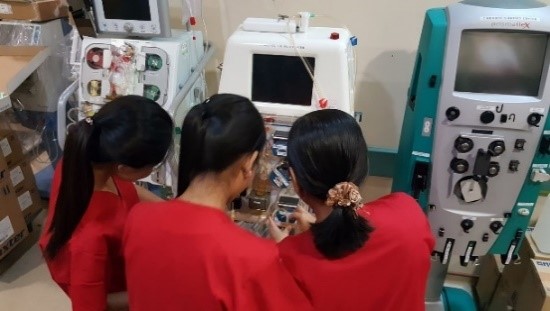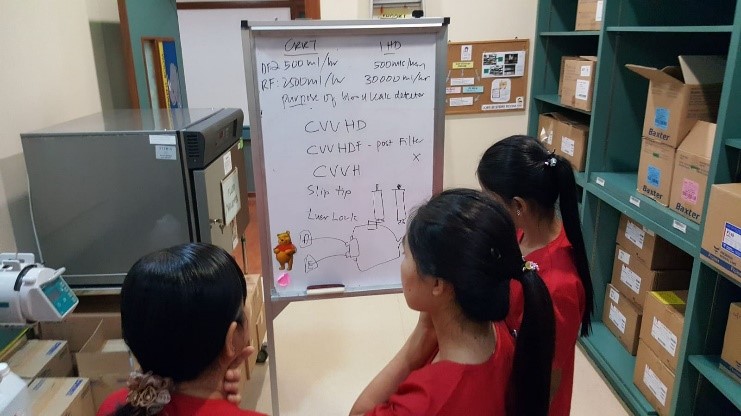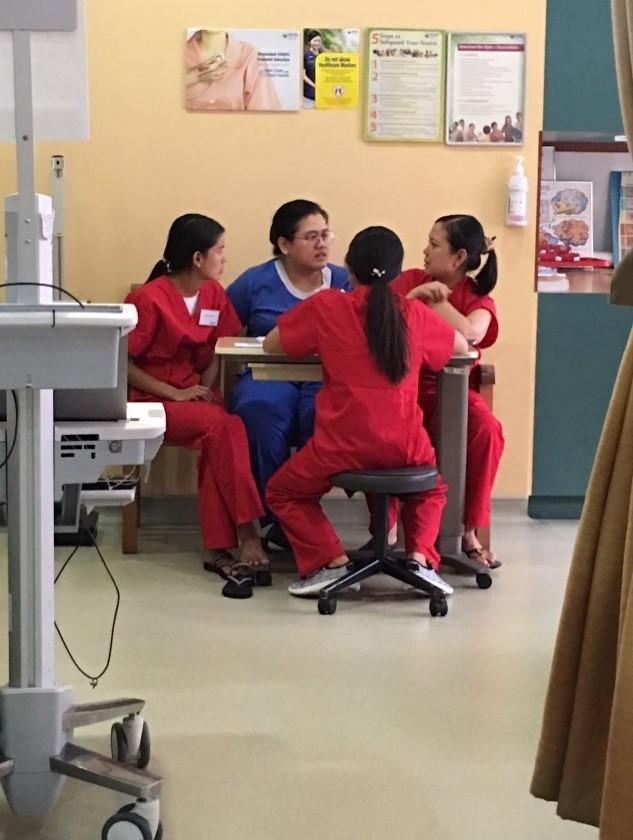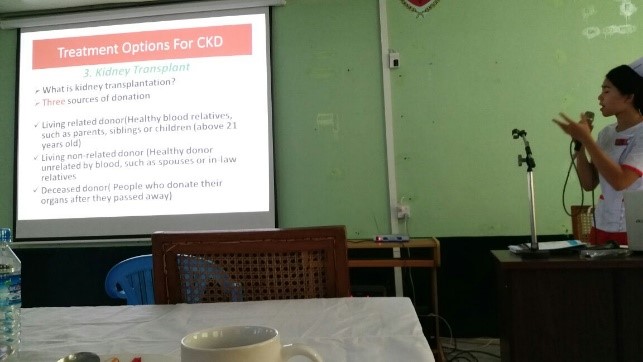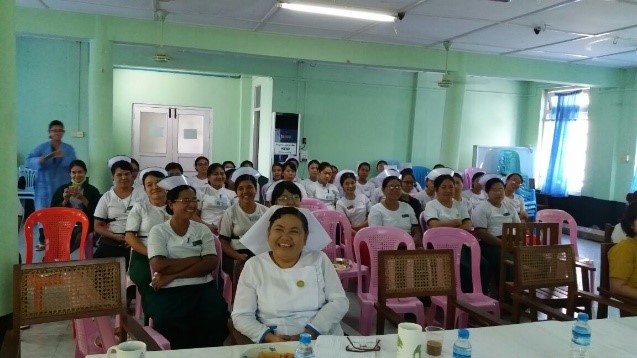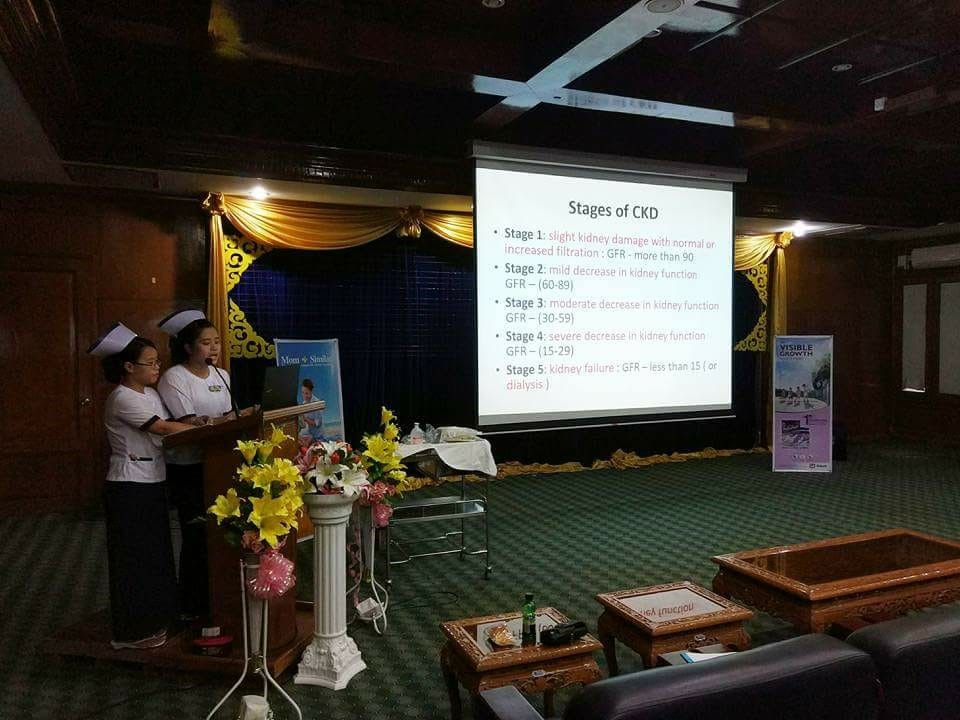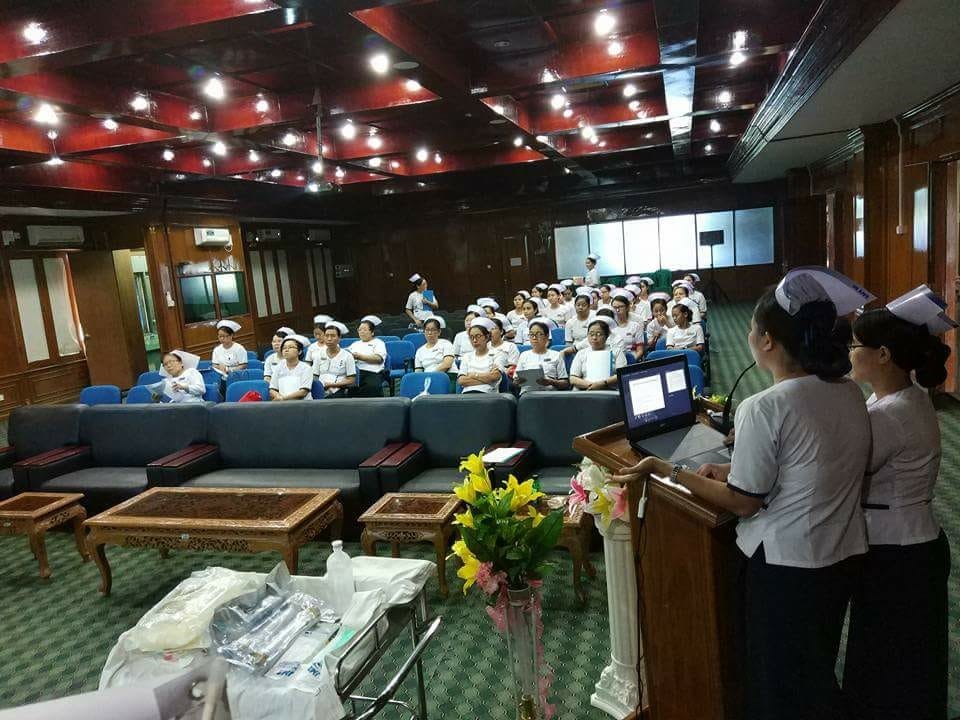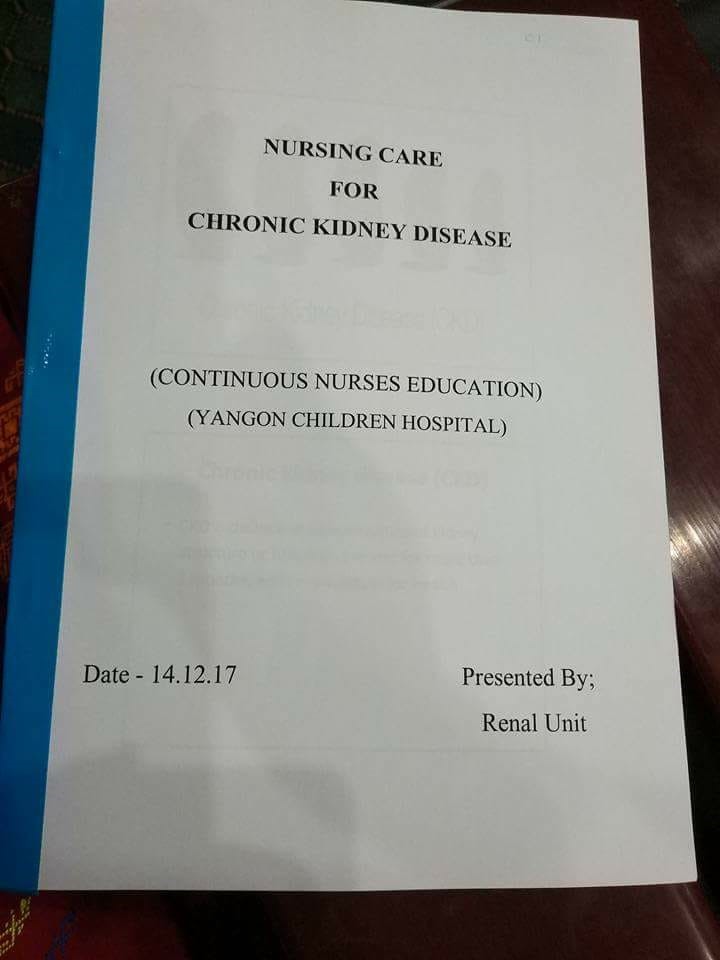Background
The quality of care for paediatric patients with end-stage renal disease requiring renal replacement therapy (RRT) in Myanmar depends on the collaboration between the specialist renal nurses, doctors, allied health and patients. Unlike the doctors, the dialysis nurses have not received overseas training. Their roles are limited to performing dialysis and patient education. They can be trained to take up more active roles like creating new patient training materials, training new nurses, setting up new work processes, creating and maintaining databases for centre audit.
Aim
The aim for this observational attachment is for the nurses to learn the key aspects of running the different modalities of renal replacement therapy programme such as:
- Chronic Peritoneal Dialysis (PD)
- Chronic Intermittent Haemodialysis (HD)
- Continuous Renal Replacement Therapy (RRT)
- Renal Transplant Programme
Focus of the observational attachment for each programme will be as follows:
- Quality Assurance Programme
- Patient Management and Education
- Continuing Nurse Education\
Upon their return to each of their centres, we hope the attendees will become nurse practitioners who will implement changes to their work processes and be a trainer to the nurses in their respective centres.
Emerging Centres (EC) nurses undergoing training at the Mentoring Centre (MC)
Steps to ensure continuity of staff nurses
In order to ensure continuity, we have asked EC doctors to make special requests to their ministries to prevent rotation of the trained nurses out of their current units. This allows the practice to retain their trained nursing staff who can then use their new skills to make impactful changes.
Outcome
The three nurses have continued to work as dialysis nurses in their hospitals. After their training in Singapore, they have developed more confidence in caring of PD and HD patients. They have established patient training protocols and materials as well as protocols for their dialysis centres. The nurses have also been fully involved in the nursing care of the renal transplants that occurred in their centres, and subsequently trained the renal ward and intensive care nurses on the perioperative care of the paediatric transplant recipient.
In addition, on their return to Myanmar, the trained nurses, Ms Kay Thi Khine (Mandalay) and Naw Paw Ne Mu (Yangon) conducted training workshops for the nurses in their centres.

